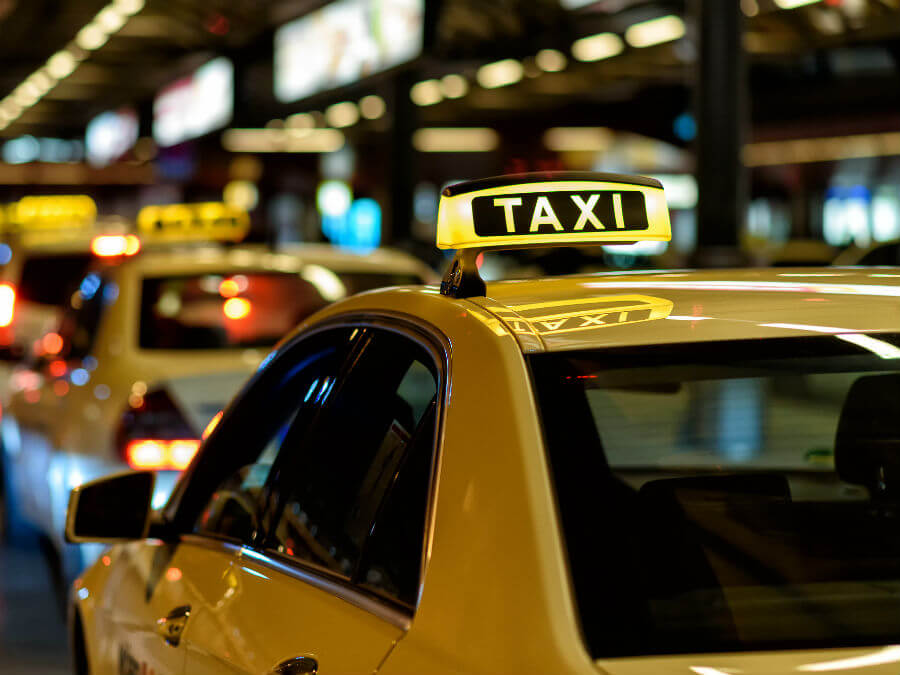
12 common travel scams
Travelling really is the only thing you buy that makes you richer, however, it’s not always smooth sailing. From plane delays to rainy days and everything in between, there’s a lot that can derail your hard-earned holiday.
But when it comes to things that can take the shine off the travel experience, getting scammed is among the worst offenders. Let your guard down overseas and you could find yourself out of pocket and even in danger.
Thankfully, there are some simple strategies you can use to avoid travel scams and enjoy your trip to the fullest. Let’s dive into 12 common travel scams and how you can beat them.

Taxi scams
Just about every frequent traveller has a story about a dodgy taxi experience. From broken meters to questionable driving routes, here are three of the most common taxi scams to look out for.
1. Meter mischief
Missing, ‘broken’ and rigged meters can easily turn a quick ride into an expensive trip. Some drivers have been known to dupe travellers with overpriced pre-set fares before starting the journey, claim their meter is out of order, and even accelerate the meter so it racks up higher costs.
How to beat it: Remember, the taxi meter is there to ensure passengers can see exactly how much their fare will cost. Always check before you enter the vehicle, and if something seems amiss or the meter isn’t working, don’t be afraid to hail another taxi. Navigation apps like Google Maps and ridesharing apps like Uber can display estimated taxi fares for many destinations, so you know what to expect before opening the door.
2. Long way home
Navigating a foreign city can be overwhelming. And when a crooked taxi driver deliberately takes a longer route, it can also be expensive.
How to beat it: Thankfully, apps like Google Maps can make sure you’re not taken advantage of, and can even be used while you’re offline by downloading local area maps ahead of your trip. Keep your phone open and follow along as you ride; the simple fact that you’ve got a map in front of you can be enough to deter dishonest drivers.
3. Rideshare app scams
Taxis aren’t the only ones susceptible to scams; ridesharing apps can also see their share of dodgy drivers. A common scam involves drivers parking close to airports and accepting your fare without any intention of picking you up. Their car doesn’t move as they insist they’re stuck in traffic and only a few minutes away, eventually forcing you to cancel the trip and wear the cancellation fee.
How to beat it: If you suspect you’ve fallen victim to this scam, lodge a complaint within the ridesharing app and chances are you’ll have your money returned.

Rental scams
Snorkels, surfboards, scooters and skis – rental equipment comes in all shapes and sizes, and can also come at an unexpected cost. Here are three common rental scams to avoid.
4. Pre-existing damage
Facing the blame for pre-existing damage is one of the oldest scams in the book, yet continues to sting unwary travellers. Small scratches and dents to equipment may not seem like a big deal, but they can be enough to hold you ransom for repair costs.
How to beat it: Always take note of any damage and highlight this with your rental operator. Better yet, document all damage with photographs before use.
5. Passport hostage
Your passport is the most important document you take on any trip, and passport scams are a sure way to turn your dream holiday into a nightmare. So when a rental operator is holding your passport hostage in exchange for unfair payment, it’s likely you’ll pay any cost to see it safely returned.
How to beat it: Never hand over your passport as a security deposit. If it’s required for identification, use a photocopy instead.
6. The thief accomplice
Imagine locking your rental bicycle securely outside a cafe, only to find it’s been stolen with bolt cutters after finishing your meal. Now imagine that the rental company organised the theft themselves, so you’d pay the replacement cost and they’d have the bike returned later that same day!
How to beat it: This scam might sound farfetched, but it happens. When using a rental company, always look online to check reviews from other travellers and see whether they have had a positive experience using the company. If you do fall victim to this type of scam, always remember to obtain a police report – you’ll need this to lodge a travel insurance claim.

Online scams
In today’s digital age, travellers can find themselves stung by cunning scammers even before they’ve left home. Here are three common booking scams to watch out for.
7. Fake booking websites
This is one of the more sophisticated scams on this list and can catch even the most experienced of travellers unawares. Fake websites are often designed to look exactly like the brands we know and trust, causing us to willingly hand over our personal details and credit card information.
How to beat it: There are several things to look for when spotting a fake website. Check the URL address begins with ‘https://’ rather than ‘http://, which should always appear on the payment page. If you see spelling errors on the website, browser security warnings or a suspicious URL address, trust your judgement and look elsewhere.
8. Hidden fees
You’ve found a spacious room in the perfect hotel, all for an attractive price. However, just before hitting ‘pay’ on the checkout page, you notice several extra charges have been applied. Service fees, transaction fees, booking confirmation fees and more have hiked up the cost of this seemingly great deal.
How to beat it: Always pay attention to the final amount shown before you checkout. And remember, if the deal seems too good to be true, it probably is.
9. Visa scams
Visa requirements can be confusing at the best of times, and for some destinations, they can be overwhelming. Fraudsters have been known to exploit this fact by offering phoney visa services that claim to manage your application for costly fees.
How to beat it: Always research customer reviews before committing to buying anything online. This goes for visa services, accommodation, tours, and even your travel insurance. If you’re unsure of your visa requirements, the SafeTravel website is a trustworthy source of up-to-date information.

Scams in the streets
Petty thieves and cunning crooks are an unfortunate reality all over the world. Here are three scams to keep in mind when you’re exploring overseas.
10. ‘Free’ gifts
This particular scam is well-known in Southeast Asia, and involves a friendly stranger insisting you accept a seemingly free gift before demanding payment in return. Bracelets, small carved statues and flowers are commonly used.
How to beat it: It’s never easy to say no to people who appear to be doing you a favour or offering you a gift. However, it’s often safest to stand your ground and politely move on.
11. Pickpockets
We often see claims from unlucky travellers who have been targeted by pickpockets overseas. There are countless varieties of the scam, from the simple snatch and run to more complex choreography.
How to beat it: Understanding how thieves operate and knowing what red flags to look out for are some of the best ways to outsmart pickpockets. Consider an anti-theft bag, leave your unnecessary valuables at home, conceal your wallet and phone, and take extra care in busy tourist hotspots. It’s also worthwhile doing some online research on the destination you’re visiting to find out what pickpocketing techniques are used in that particular area.
12. ATM skimmers
ATM skimming comes in many shapes and sizes, but usually involves some tampering of the ATM machine in order to steal your personal information. This could be through small concealed cameras, fake card slots and even phoney keypads, which are designed to capture your information while blending into the appearance of the machine.
How to beat it: Always inspect the physical state of the ATM before using it. If you see loose parts, sticky tape residue or suspicious scratches, it may be best to find another machine. Where possible, find well-maintained ATMs in indoor areas, such as banks, that are less accessible to scammers.
The content of this article is general and provided for information purposes only. Southern Cross Travel Insurance (SCTI) doesn’t guarantee or warrant the accuracy, completeness or currency of any article.
This article may contain hyperlinks to other websites owned or operated by third parties, or references to third party products or services. SCTI isn’t responsible for, and makes no recommendation about, the content or accuracy of any third party website, or for the suitability or performance of any product or service. The inclusion of a link in this article doesn’t imply that SCTI endorses the website or third party product/service.





